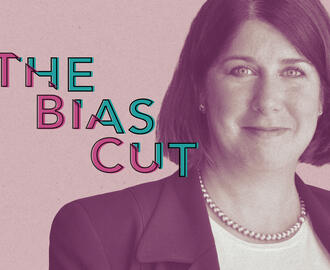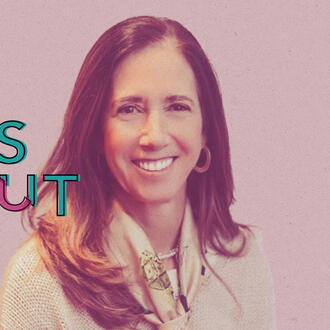Credit: Laura Wentzel
A 2020 women’s leadership study from LeanIn.org and McKinsey & Co. found that American women held less than 40% of corporate management positions, and women continue to fight underrepresentation when it comes to board positions and CEO roles. They also face gender bias, harassment, and opposition to their management styles. Here’s how one Sloan alumna has pushed back on those statistics and used what she’s learned along the way to help those behind her.
Heidi Zak, MBA ’07, co-founder and co-CEO ThirdLove
Can you give an example of a time you’ve experienced or witnessed gender bias? How did it affect you professionally? What impact did it have on your job?
Raising money as a female founder is difficult. It’s challenging for anyone to get funding for a startup, but as a woman in a male-dominated industry, there’s an added degree of difficulty. I can still remember one particular pitch while raising money for ThirdLove. I show up to this meeting with my husband Dave, who also happens to be my co-founder. We give our pitch and feel pretty confident. Then, at the end of the meeting, the guy gets up and says “Sorry, but we only invest in businesses we understand.” Just a quick reminder that we make women’s underwear.
Certain industries are as male-dominated as ever. Where do you see progress in your own professional experience and how can we scale that throughout your industry?
There’s certainly more of a focus on gender balance and diversity across the board than there used to be. And that means female CEOs have the opportunity to sit on panels or speak at events where they might normally just have been among the audience. A major reason for this is because female CEOs offer unique perspectives on leadership and hiring diverse talent, and they help show the path for other women in the audience to becoming a CEO as well. The more representation of female leaders across all industries, the more we can encourage women earlier in their careers to see examples that fuel their own choices and career paths.
How do you support women coming up behind you?
At ThirdLove, our executive team is 67% women. And overall, the company is about 80% women. It’s interesting because we actually think about our diversity and our culture as it applies to hiring men. We make sure it’s inclusive, that men are comfortable in the environment, and that they’re spread out in teams across the organization.
I’ve come to realize that I personally wouldn’t have this opportunity to lead ThirdLove if it weren’t for the fearless female founders before me. That’s why I started angel investing in other female-founded companies a few years back, and I’m proud to be an investor in nine early-stage startups.
After I graduated from college, I was working as an investment banking analyst in New York. My manager was another young woman, Lisa, in her late 20s at the time. She wrote one of my recommendations for business school and helped me make some big decisions in my career and personal life, including encouraging me to get pregnant while in the early stages of building ThirdLove.
What is the most difficult lesson you’ve learned in your professional life? In what unexpected ways did you grow from it?
During my professional life at ThirdLove, I’ve learned quite a few lessons. For example, when we first started manufacturing, we took on way too much with an overly ambitious made-on-demand line. It backfired, and right before we were going to run out of money and lose it all, we totally changed our supply chain and manufacturing line based upon what we had learned. Today we produce hundreds of thousands of bras a month. So the lowest moment in my career proved to be the most meaningful, and allowed us to grow and scale.



